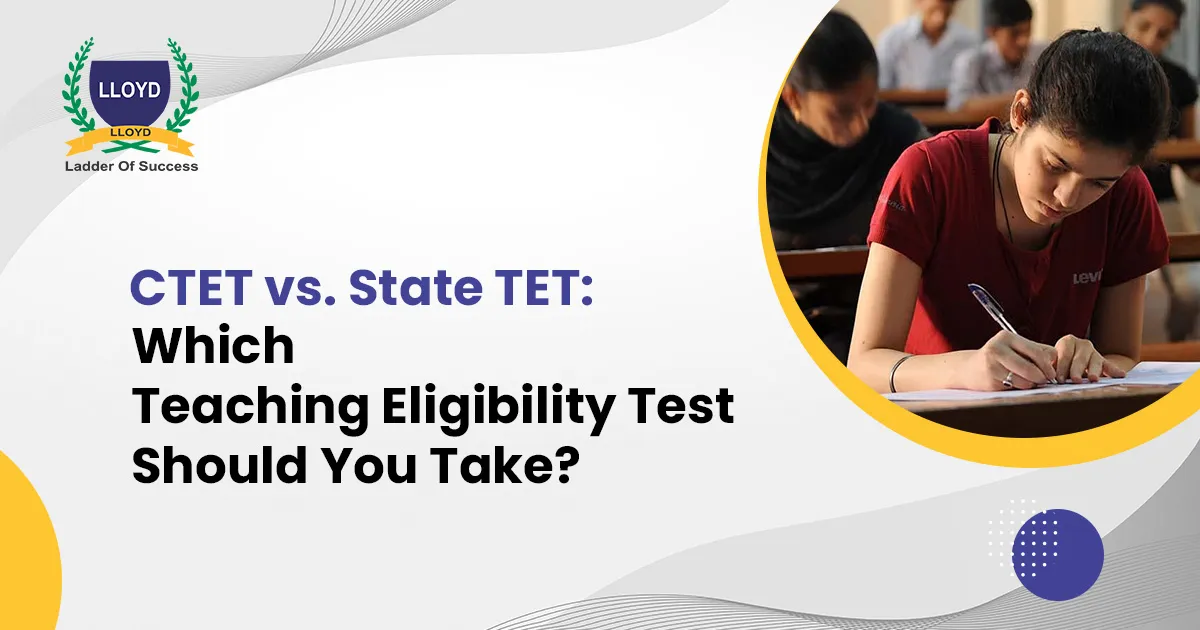
India’s education system has become increasingly competitive, and teaching jobs—especially in the government sector—require candidates to clear standardized eligibility exams. These tests ensure that candidates are equipped with the necessary pedagogical knowledge and subject expertise. Among the most recognized are the Central Teacher Eligibility Test (CTET) and various State Teacher Eligibility Tests (State TETs).
Both exams serve as gateways to government and even private teaching opportunities, especially for those aiming to build a career after completing a B.Ed. or equivalent degree. While these exams may seem similar on the surface, they differ in scope, recognition, and career benefits.
If you’re exploring which government exams are important for teaching jobs in India, understanding the difference between CTET and State TETs is critical to your preparation and success.
The Central Teacher Eligibility Test (CTET) is conducted by the Central Board of Secondary Education (CBSE) and is recognized nationwide. It is essential for candidates aspiring to teach in schools governed by the central government such as:
Candidates often ask how to apply for the CTET exam. The process is online and includes filling out an application form, uploading documents, and paying the fee through the official portal. Being aware of CTET eligibility is vital. It generally includes a minimum qualification of a Diploma or Bachelor in Education, depending on the teaching level (Primary or Upper Primary).
The CTET exam pattern comprises two papers:
Candidates can attempt both papers if they meet the eligibility criteria.
One of the significant benefits of CTET is its lifelong validity. Once qualified, you are eligible for central government teaching positions throughout your career, without the need for re-certification.
Another advantage is that many private schools across India accept CTET as part of their hiring criteria, making it a valuable certification even beyond public sector jobs.
While CTET is centralized, every Indian state conducts its own State Teacher Eligibility Test. These include:
Each state’s TET is typically conducted by its State Board of Education or relevant education department and applies to government schools under that state’s jurisdiction. For instance, clearing UPTET makes you eligible to teach in government schools within Uttar Pradesh.
Unlike CTET, State TETs are not accepted nationwide. Their validity is usually limited to the respective state, which means if you clear HTET, it may not qualify you to teach in a Delhi government school.
The exam format and syllabus often mirror CTET to a large extent, but there can be differences. Some states may include state-specific content, regional languages, and specific educational policies relevant to their curriculum.
A key point to remember is that each State TET comes with its own eligibility and exam pattern, so it’s crucial to thoroughly check each state’s official guidelines.
Despite the regional limitation, State TETs are critical for those who prefer to teach closer to home or aim for a teaching job under the specific state education system.
This question—CTET or State TET?—depends on your career aspirations and geographic preference.
Choose CTET if:
Choose State TET if:
Both tests have their unique advantages. However, if you’re truly committed to the teaching profession, appearing for both CTET and your respective State TET will maximize your chances of employment and give you broader career options.
In fact, many aspirants treat CTET as a stepping stone to qualify for Teacher Eligibility Test (TET) in India across states. The CTET exam pattern is often considered the benchmark for most TETs, making it excellent preparation for multiple eligibility tests.
Yes, absolutely. Many serious teaching aspirants register for both CTET and their State TET in the same academic cycle.
Here’s why it’s a smart move:
Many B.Ed. students from top B.Ed. colleges in Delhi NCR are encouraged to appear for both exams, as this enhances their placement prospects. These colleges also guide students through the step-by-step registration process for CTET and other TET exams.
Moreover, if you're planning a career after B.Ed., qualifying both exams provides you with long-term career stability, and you can also apply for contractual teaching jobs and government job notifications that require eligibility proof.
To make the most of this opportunity, start early. Understand the CTET eligibility criteria and the application timeline. Similarly, track your state’s education board portal to stay updated on exam announcements and syllabus changes.
If you're still uncertain, consider the following:
If you are preparing for these exams, it’s essential to understand how to prepare for government teaching jobs in India. Start by covering NCERT books, previous year papers, and mock tests. Understanding the CTET exam pattern can also act as a blueprint for preparing for other teaching exams.
Deciding between CTET and State TET is not a one-size-fits-all solution. Both exams are equally important and valuable, but your choice should align with your long-term career goals.
If you want nationwide eligibility and the ability to apply for prestigious institutions like Kendriya Vidyalayas and Navodaya schools, go for CTET. If you are targeting state-level government teaching jobs, appearing for the relevant Teacher Eligibility Test (TET) in India is essential.
Ideally, to increase your chances of selection and broaden your teaching career prospects, prepare for and take both. Use a reliable B.Ed. college in Delhi NCR or your home state for academic and preparation support.
No matter which exam you choose, your teaching journey begins with focused preparation, awareness of the syllabus, and consistent effort.
Let your dedication lead the way to a successful career in education.